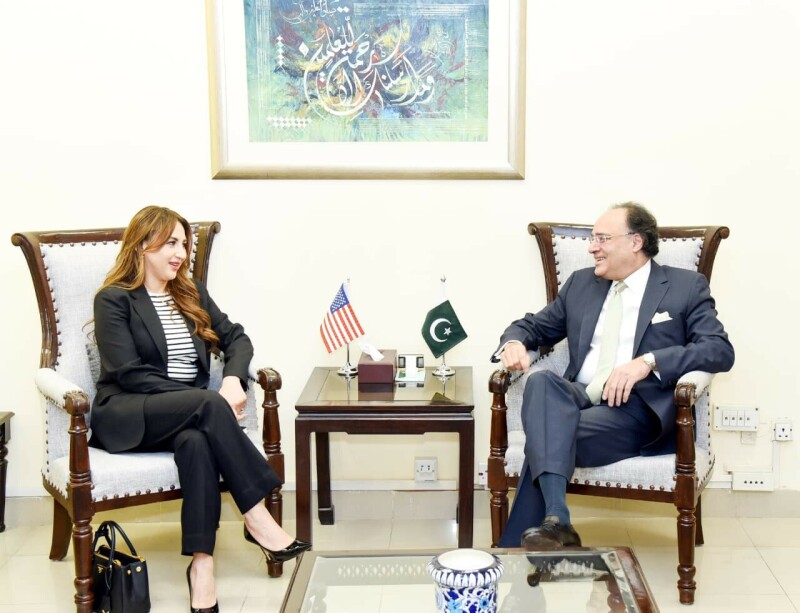Pakistan and the United States reaffirmed their commitment to deepen economic cooperation, with both sides agreeing to advance a new trade agreement aimed at expanding market access, boosting investment, and promoting collaboration in key sectors.
The development came during a high-level meeting between Natalie Baker, Chargé d’Affaires of the Embassy of the USA, and Finance Minister Muhammad Aurangzeb on Friday at the Finance Division.
Last month, the US administration imposed a 19% reciprocal tariff on a wide range of Pakistani goods, significantly lower than the initially proposed 29%, under an executive order signed by US President Donald Trump.
Pakistan’s revised tariff rate of 19% is lower than that of several regional economies, including India (50%), Bangladesh (20%), Vietnam (20%), and Sri Lanka (20%).
During Friday’s meeting, matters of mutual interest, including avenues for enhancing bilateral trade, commerce, and US investment in Pakistan, were discussed.
The finance minister stated that Pakistan’s economy had “turned a corner,” noting that the recent upgrade by Moody’s—aligning all three major international rating agencies in their assessment of Pakistan’s economic performance—was clear evidence that the hard and necessary reforms undertaken by the government were yielding positive results.
Moody’s upgraded the Government of Pakistan’s local and foreign currency issuer and senior unsecured debt ratings to Caa1 from Caa2. The rating agency also upgraded the rating for the senior unsecured MTN programme to (P)Caa1 from (P)Caa2.
Aurangzeb highlighted that Pakistan’s bold and much-needed tariff reforms aimed at liberalising trade and steering the country towards export-led growth.
Aurangzeb thanked the United States for its continued economic and development support to Pakistan and recalled his recent visit to Washington, D.C., where he had engagements with US Secretary of Commerce Howard Lutnick and United States Trade Representative Ambassador Jamieson Greer to finalise the trade agreement between the two countries.
The finance minister emphasised that the agreement would usher in a new era of economic collaboration—particularly in energy, mines and minerals, IT, cryptocurrency, and other sectors—while expanding market access, attracting investment, and fostering cooperation in areas of mutual interest.
He expressed hope that the deal would lead to increased US investment in Pakistan’s infrastructure, development projects, and digital and mining sectors, which were ready for tangible action and progress.
Meanwhile, Natalie Baker said that the trade agreement presented a significant opportunity for both Pakistan and the US to expand bilateral trade.
She noted that US companies were taking a keen interest in investment and entrepreneurial opportunities in Pakistan, particularly in supply chain, production, project management, energy, critical minerals, mining, and oil exploration, read the statement.
The meeting concluded with both sides reaffirming their commitment to working closely together to advance these initiatives, ensuring mutually beneficial outcomes and further strengthening trade and economic cooperation between the two countries.


